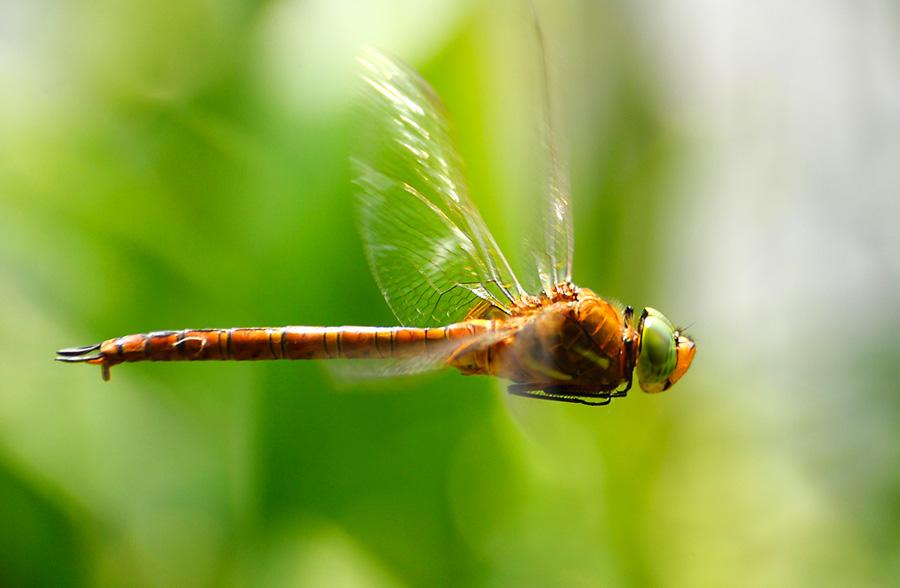Emulating nature’s perfect pursuit

The University of Adelaide’s machine learning expertise is also making waves in defence and other sectors, by enhancing autonomous-pursuit capabilities.
In an entirely novel approach, computer scientists, engineers and neuroscientists at the University have adapted dragonflies’ neuronal processes into a unique algorithm that emulates the insect’s phenomenal visual tracking capability.
Widely considered nature’s most effective predator, dragonflies are able to target, pursue and capture tiny flying prey in mid-air at speeds of up to 60 km/h—even if that target attempts to disappear within a seething swarm—with an incredible hit-rate of over 95 per cent.
Tested in various nature-mimicking virtual reality environments, our pursuit algorithm matches all other state-of-the-art pursuit algorithms’ accuracy, but achieves that while running up to 20 times faster,says Professor Ben Cazzolato.
“So it requires far less relative processing power.”
Mechanical engineering researchers at the University have also incorporated the algorithm in an autonomous robot that, in testing, has effectively and efficiently pursued targets in unstructured environments.
The interdisciplinary project is being led by neuroscientist Dr Steven Wiederman , of the University of Adelaide Medical School ’s Visual Physiology and Neurobotics Laboratory. It was Wiederman’s team that first identified how the dragonfly is able to focus on a single moving target and shut out all else—a remarkable find in itself.
“We recorded the activity of dragonfly neurons, and discovered the first identified neuron in any animal that exhibits an ‘attentional spotlight’,” he explains. “It’s able to select a single target amidst distracters. We also recorded from target-detecting neurons that predictively encode trajectory, enabling the dragonfly to estimate its target’s future location and ambush it.”
Keen to see how much further this translational path can take them, Wiederman and his team are now collaborating with Professor Reid to develop neurobiology-inspired machine-learning drone-tracking systems.
“We’re excited to further define the principles underlying neuronal processing. Translating them into advanced artificial vision systems could result in some incredibly effective autonomous robotics and drones, as well as neuronal prosthetics and many more applications.”
